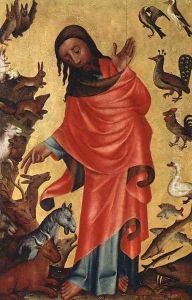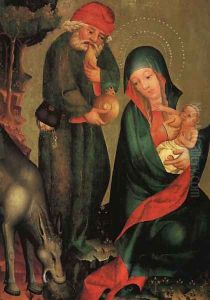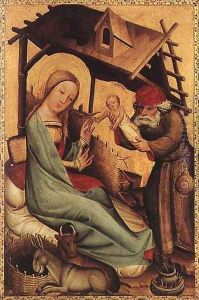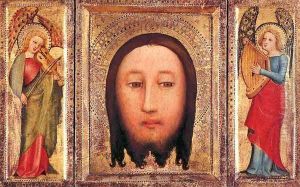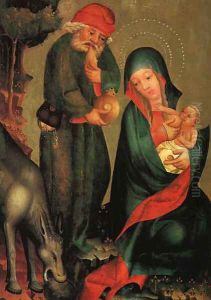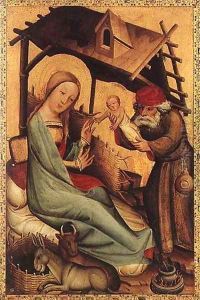(Master of Minden) Bertram Paintings
The Master of Minden, often identified with the painter Bertram of Minden, was a significant figure in the German art scene during the late Gothic period. His precise birth and death dates are not documented, but art historians estimate his birth around 1340 and his death around 1415, based on the stylistic analysis of his works and historical records of the period. Bertram is most renowned for his contribution to religious art, specifically his detailed altarpieces and vivid portrayals of biblical narratives. He was active primarily in the region of Minden, now in modern-day Germany, which played a crucial role in the dissemination of Gothic art across Northern Europe.
Bertram's most celebrated work is the Grabow Altarpiece, completed in 1383, which is considered a masterpiece of late Gothic painting. This altarpiece showcases his skill in storytelling through images, his meticulous attention to detail, and his ability to convey complex theological concepts through art. Bertram's style is characterized by its emotional depth and the use of intricate details to enhance the narrative quality of his biblical scenes. His work not only reflects the religious fervor of the time but also illustrates the transition from the medieval period to the Renaissance by incorporating elements of realism and perspective that were revolutionary for his era.
Beyond the Grabow Altarpiece, Bertram's oeuvre includes several other significant works, though many have been lost or remain unidentified. His influence extended beyond his immediate geographical region, impacting the development of Northern Renaissance art. Despite the limited number of surviving works definitively attributed to him, Bertram of Minden's legacy is preserved in his contribution to the evolution of European art, marking him as a pivotal figure in the bridge between the Gothic and Renaissance periods. His work remains a subject of study for art historians, who admire his innovative approach to composition and his ability to imbue religious subjects with a profound sense of humanity and divine presence.
